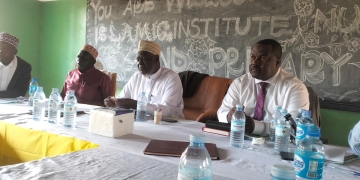
The Government of Uganda has earmarked a total of Shs1.711 trillion as wealth creation funds in the National Budget for 2022/2023 as part of its strategy to ensure economic recovery from the effects of Covid-19 and the current high prices.
Finance minister Matia Kasaija, while delivering the budget at Kololo Ceremonial Grounds in Kampala on Tuesday, June 14, 2022, said the overriding goal of the ruling government is to achieve socio-economic transformation for the benefit of all Ugandans and thus improve their lives.
“Madam Speaker, the theme of the Budget for Financial Year 2022/2023 is, therefore “Full Monetisation of Uganda’s Economy through Commercial Agriculture, Industrialisation, Expanding and Broadening Services, Digital Transformation and Market Access,” he said.
“This theme summarises our Budget Strategy and the priorities that I will later elaborate. The theme is in line with that of the East African Community (EAC) which is “accelerating economic recovery and enhancing productive sectors for improved livelihood,” he added.
The main vehicle for improving household incomes (wealth creation) in the 2022/2023 national budget is the Parish Development Model (PDM), which has been allocated sh1.059 trillion.
Through PDM, the Government will be investing in organized groups such as SACCOS and co-operatives, which are involved in agricultural production at parish level.
A total of Shs72.7b has been allocated to the Microfinance Support Centre (MSC) to give low-cost credit to SACCOS. In its reallocations in the budget, Parliament gave an extra sh35b to MSC to give out grants/donations to beginning and struggling SACCOS.
The Government has also allocated an additional Shs100b towards the Emyooga programme to continue giving out funds to SACCOS, especially in urban areas or groups of people involved in similar economic activities.
The Presidential Initiative on Wealth and Job Creation (Emyooga) was launched in August 2019 as part of the broad government strategy, targeting to transform 68% of homesteads from subsistence to market-oriented production, with the overall objective of promoting job creation and improving household incomes.
The initiative is centred on various 18 categories/enterprises/Emyooga, covering the majority of the hitherto, financially excluded Ugandans engaged in similar specialised enterprise categories.
These include market vendors, welders, taxi drivers, carpenters, bodabodas, women and performing artists.
Other economic empowerment funds in the budget include sh30b to the Uganda Coffee Development Authority for distribution of free coffee seedlings and sh30b for cattle restocking in Lango, Acholi and Teso sub-regions.
Another sh20b is for co-operatives, sh120b for the elderly persons, sh50b for Agriculture Credit Facility, sh48.7b to Uganda Development Corporation for the establishment of factories, sh34b for Women Entrepreneurship Programme and sh85b for Uganda Development Bank (UDB).
As part of interventions for resuscitating Uganda’s economy from the effects of COVID-19, the Government in 2020 allocated over sh530b to UDB to give low-cost credit to private businesses.
According to UDB executive director Patricia Ojangole, UDB’s capital base has now reached sh1.1 trillion.










